Thaddeus Stevens College of Technology is bringing prestige back to the trades and helping America’s skills shortage
Thaddeus Stevens College of Technology in Pennsylvania offers hands-on education that equips graduates with life-long skills – and makes them eminently employable.
In 1835, a packed Pennsylvania legislature nearly voted to repeal the state’s fledgling free education system after opponents labelled it too expensive and gathered 32,000 signatures. Enter Thaddeus Stevens, a fiery 43-year-old lawyer who was raised in poverty in rural Vermont and paid for his Dartmouth College tuition with the proceeds of his mother’s sale of the family farm. He delivered an impassioned defence, arguing that public schooling was both economically sound and morally imperative – its repeal would be “an act for branding and marking the poor”. His speech elicited cheers and swayed the legislature, making Pennsylvania a global leader in free education. Nearly two centuries later, the state is again pioneering educational innovation through an institution bearing Stevens’s name.
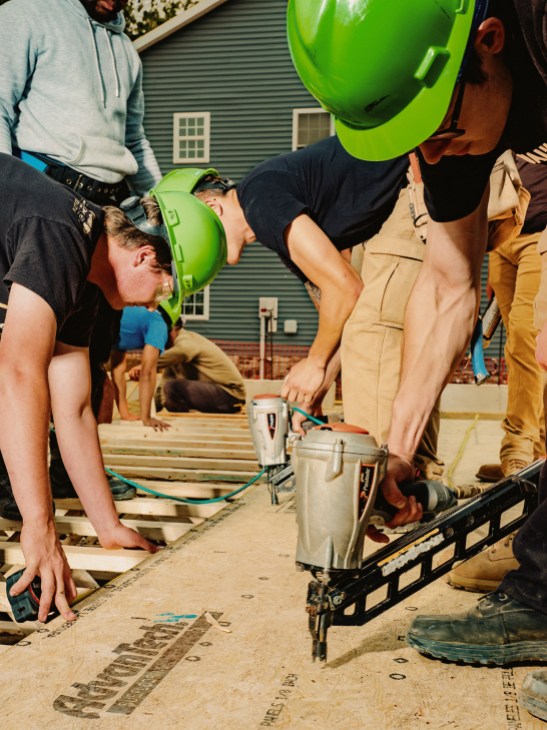
Thaddeus Stevens College of Technology is a trade school, where students learn skills such as carpentry or masonry rather than earn a degree in economics or philosophy. The concept isn’t new – the nation’s first school of this kind opened in Boston in 1881 and European guilds have been teaching trades through apprenticeships for centuries – but the college’s time-tested approach is an ideal fit for the current moment. US higher education is in flux, while the construction industry is desperate for skilled workers.
Established in Lancaster in 1905 with funding from the estate of Thaddeus Stevens and the Pennsylvania government, an hour’s train ride west of Philadelphia, it seems like a traditional college campus, with a vibrant student life and well-rounded course offerings. Students might spend more time wielding tools than reading books but they still live in residence halls and cheer on the school’s American football team (nicknamed the Bulldogs). The end result is designed to overcome classist stigma around technical education and careers. In the popular imagination, such two-year trade schools result in dead-end blue-collar jobs, which is seen to be inferior to four-year undergraduate universities that theoretically lead to a white-collar career path. But as the latter loses some lustre, the former is poised to shine, with renewed attention from parents and education professionals alike.
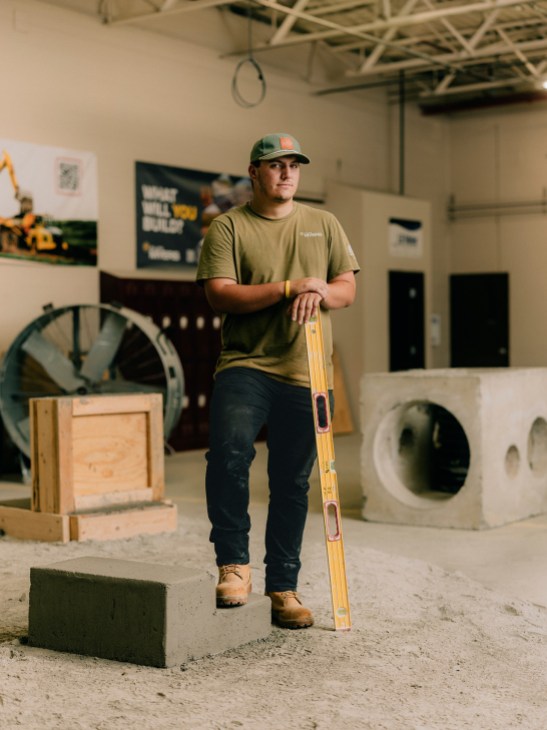
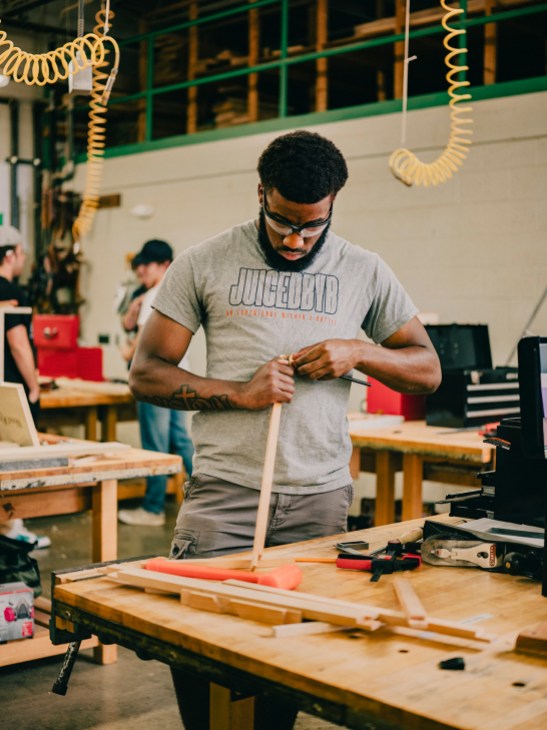
“Thaddeus Stevens has disproven the binary,” says Pedro Rivera, a former Pennsylvania secretary of education who became the school’s president five years ago. “You don’t have to sacrifice one for the other.” Borrowing a metaphor from the hospitality industry, he argues that with a Thaddeus Stevens degree, “you can be prepared for both the front and the back of the house”. A prime example is the architectural technology programme, which is one of 24 associate degree offerings. Students learn the ropes of drafting software that will make them immediately employable in an architecture firm. They also have an ace up their sleeves in terms of soft skills that will make them useful beyond the desk: sharing classrooms and dorm rooms with future carpenters and welders who will be tasked with converting an architect’s vision into reality. As a result, graduates of this scheme are prepared for a professional design setting while speaking the language of tradespeople. “I’ve often seen a traditional architect butt heads with contractors,” says instructor Jana Belack. “The open lines of communication aren’t there.”
Belack is a Thaddeus Stevens alumna who went on to pursue an architecture degree and earned her licence. She worked for firms in Boston for more than a dozen years before returning to teach at her alma mater, while retaining a part-time remote job that helps her bring real-world construction questions into the classroom. While Belack’s students are mostly hunched over computer screens, the bread and butter of a Thaddeus Stevens education is the “back of the house” – such as the pile of crushed stone and aggregate the size of half a football field that greets Monocle in the civil engineering construction technology programme.
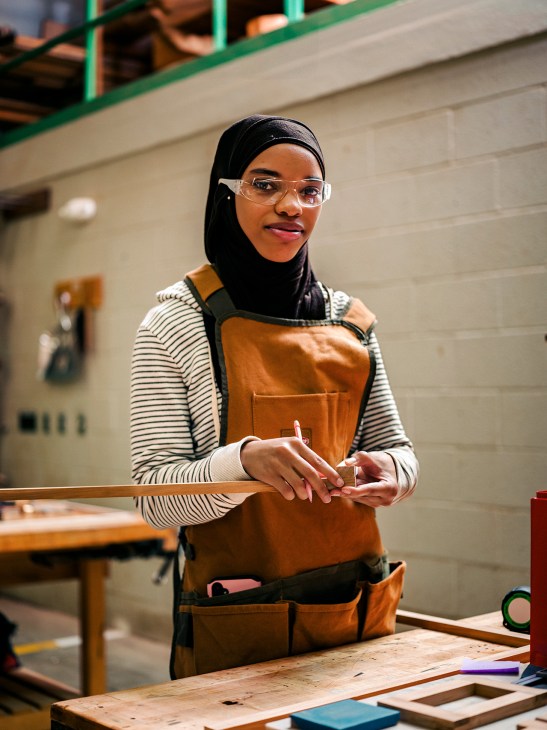
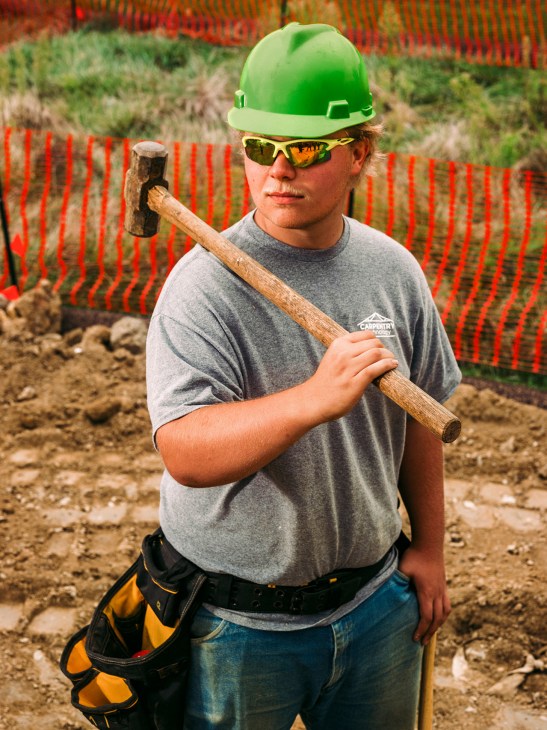
Inside a warehouse-like facility, students get their boots dirty as they lay rebar in a lattice on top of the pile. Instructor Mitch Kauffman provides a group with a loose set of drawings to prepare the rebar grid, a core component for stabilising concrete bridge decks, floor slabs and runways. They spend an hour talking over the assignment before the physical element: rebar stakes are piled in wheelbarrows and a dusty smell perfumes the air.
That ratio of laboratory to classroom time won over second-year student Ryan Beppel, who transferred to Thaddeus Stevens from Pennsylvania State University, the state’s flagship institution with an enrolment of 89,000, where he studied engineering. “I liked everything about Penn State, except it wasn’t what I wanted to do with my life,” he tells Monocle after class. “I didn’t want to make the drawings; I wanted to build them.” Beppel is the grandson of a tool salesman and collaborated closely on home remodelling projects with his father. He knew that he wanted to work with his hands and wasn’t sure if he needed to pursue higher education in lieu of on-the-job training. But in a secondary-school culture that still prioritises college preparation, he followed a more traditional path to Penn State and enrolled in civil engineering, which was the closest field to construction.
The courses were held in large, impersonal lecture halls. It wasn’t Beppel’s preferred style of learning but he ploughed through five semesters. About halfway through his four-year degree, he says, “I saw the light at the end of the tunnel and it revealed that I would be more in the office and not working with my hands. That’s what led me to Thaddeus Stevens.”
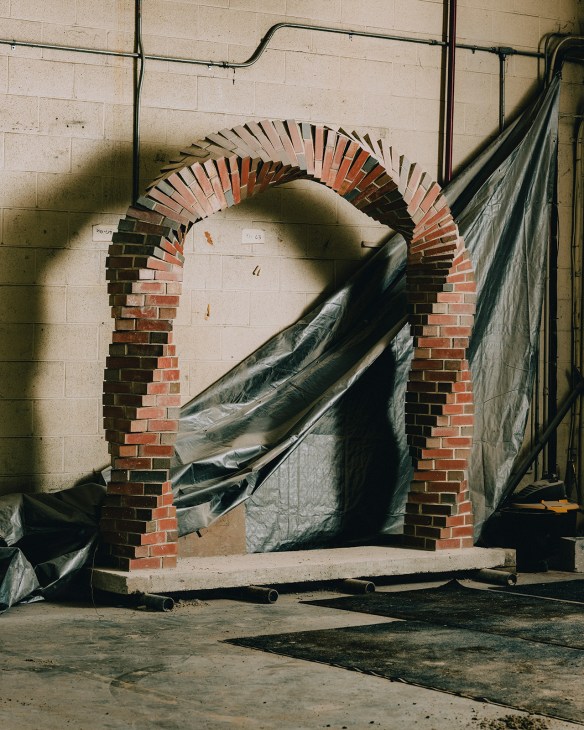
The other factor that led him to the college was his employer at the time. Beppel was an intern for Allan Myers, the largest civil construction firm in the mid-Atlantic region. It sponsors the school’s civil construction technology programme. The company’s banner hangs from the rafters and the equipment and skills in the lab align with what its employees use in the field. That imprimatur was enough for Beppel to choose Thaddeus Stevens over rival trade schools.
On the day that Monocle meets him, the 22-year-old has just signed an offer letter to start as a full-time field engineer, making $75,000 (€64,000) per year. He sees a viable career path to becoming a foreman and can imagine spending years at Allan Myers, which, he says, encourages its employees to learn new skills and move into different roles. “I don’t like doing the same task every day,” he says.
Well-paid, secure employment is Thaddeus Stevens’s calling card. While it initially opened its doors to serve orphaned boys willing to learn a trade and acquire an academic education, it now teaches Pennsylvanians of any gender or income. The school became accredited in 1991 and today there are nearly 1,500 students who are almost guaranteed to find a suitable job.
In the class of 2024, 91 per cent had jobs at graduation and 6 per cent went on to additional education. Programmes are vetted based on demand for graduates and earning potential; if there aren’t enough job vacancies and a given field pays below a living wage, it doesn’t make the cut. For example, there’s no web design programme, even though related fields such as graphic communications are offered. Additionally, courses at Thaddeus Stevens cost markedly less than a “traditional” university education, so the ability to graduate with little or no student loan debt – a $1.81trn (€1.54trn) albatross round the collective necks of US college graduates – is a key part of the school’s value proposition.
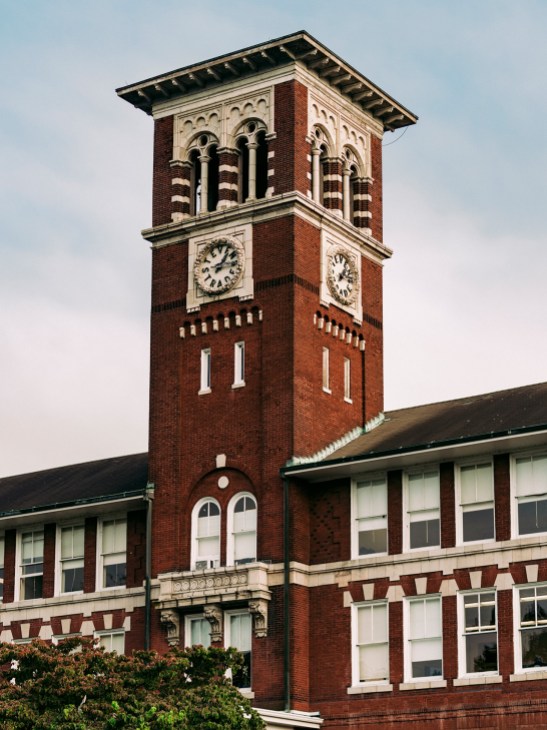
The maths added up for first-year masonry student Caden Stone. Both of his parents went to college. His father wanted his son to follow in his footsteps and become a lawyer. But in secondary school, seeking to “toughen up” his son, Stone’s dad found him a summer job working with a mason. Unexpectedly, he enjoyed the work. Stone anticipated studying accounting in college but the prospect of being stuck at a desk instead of working outside was a non-starter. Then a teacher ran students through an exercise in his last year of secondary school: envision the lifestyle that you want to live and ask what you can do to make it happen.
“In seconds, I saw the life that I wanted for myself and I thought of what masons bring in,” he says. “There’s a traditionalism that I feel like you could achieve. If you work hard, you can support a family that way. The old American dream is still possible in the trades.”
Stone and his classmates are part of a growing wave among Gen Z students and their families whose traditional faith in a college education is starting to crack. Trade-school enrolment is at its highest level since 1992. According to a survey in the 2025 Blue Collar Report, sponsored by contractor software firm Jobber, only 16 per cent of Gen Z’s parents now believe that a traditional four-year college degree guarantees long-term job security. At the same time, the cultural pressure to attend college is high – in those same surveyed families, three-quarters of Gen Z students still plan to attend a four-year school.
Rivera, the Thaddeus Stevens president, acknowledges his complicity in perpetuating that culture. During his time as a teacher and school district superintendent, before his five-year stint in charge of public education statewide, he enthusiastically pushed students to study for four years. “Thaddeus Stevens opened my eyes,” he says. “It’s no longer about being a traditional tradesman. We’re teaching you the skills that you need to be really good at your job but also building the competencies in you to be a lifelong learner.”

That is the pitch that Rivera gives the more than 1,000 parents and prospective students who are now packing the school’s twice-yearly open houses to browse the career and technical offerings, while noting with approval that there’s still coursework in composition, history, economics and even literature. Compared with commuter-style trade schools and community colleges that feel more like clocking in and out of a job, Thaddeus Stevens has the trappings of the traditional college experience.
After quietly existing for 120 years, the school is now receiving wider attention. Its faculty will begin teaching in Philadelphia next year and Rivera says that he fields regular queries from across the US about how to replicate the college’s success. As higher education gets swept up in changing political currents, trade schools could soon experience a windfall. One proposed use of funds from White House settlements with Ivy League universities is financial support for new and existing trade schools.
Beyond the current administration’s stated preference to encourage more domestic manufacturing and industrial might, there is a potential fringe benefit to trade education – one that might soften the country’s culture wars. On the Thaddeus Stevens campus, there is a notable absence of polarised political activism. Given that classes start at 07.30, just as students’ future jobs might, there perhaps isn’t the time or energy for political theatrics.
Instead, students focus on physical work that also pays civic dividends. For more than 70 years, the capstone for students across the construction-related degree programmes is the home project. They design and build a house from scratch, then turn over the keys to an estate agent; some of these homes are designated “affordable housing” and are sold at below-market-rate prices. While professional firms take on some crucial tasks such as pouring the foundation, students are involved in everything from drawing blueprints to acquiring permits from the local planning authority. When Monocle visits the project site, students in hard hats and Carhartt jackets are busy firing nail guns into wood beams, as country music plays from a speaker. It looks like a construction site – because it is one.
The complexity involved in home construction, especially when students themselves call the shots and aren’t just taking orders from a foreman, disproves outdated notions about manual labour. Back in the masonry lab, Caden Stone chats next to an ornate fireplace, the handiwork of last year’s students. “You’re not the brightest bulb in the shed,” he says, mimicking snobby misconceptions of trade-school students. But the Gen Z future mason brushes aside those stereotypes. “We need plumbers,” he says. “We can’t all be influencers.”


